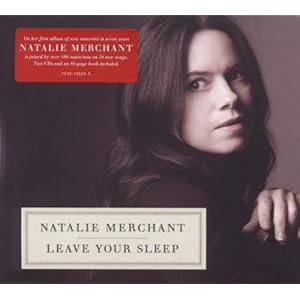You just announced some upcoming performances as a guest soloist at orchestral shows. Is this the next direction for you?
I enjoy working with the wide variety of instruments the symphony provides, and the textures and the emotional resonance of those instruments. I'm trying to find a way to mature in this field called pop music, which really loathes the aging process and loves youth. I just feel like I don't want to do the same thing I did when 25 or 35. The songs have endurance and have retained a lot of validity. But I'm focusing on how to make the experience appropriate for the way I feel now, with new material.It's an awkward thing to talk about, but it's true: It's possible to be a musician, but you can't be a pop musician and be a woman and continue in this forever. There's so much lived experience and some wisdom I've gained in my life, and there must be room for that. Emmylou Harris is still making good records; Paul Simon and Peter Gabriel matured and have grown through pop music -- and nobody expects them to do the same thing as they did in their early 20s.
Merchant is talking about pop music, which is has its own unique issues, but I think it there is also an echo in the theatre. When studies like that of the 2010 OOB Survey of Theatre Practitioners, which Tom Loughlin analyzed in a post entitled "Theatre Facts," shows that
- 67% of all indie actors are between the ages of 21-40, a 19-year span. The highest age group is 26-30 year-olds at 24%. The average age is 36, the median is 33.There is an attrition rate of 50% from the 26-30 age group (24%) to the 36-40 age group (12%). All the percentages over 40 are in single digits. Only 20% of indie actors are between 40-55, a 15-year span.
- You’re single and childless. 51% of you are single, and 18% are living with a partner (not married). 92% of you have no children. I am assuming this 92% childlessness rate runs across all age groups.
So when we talk about the distribution of arts funding, we're not only talking about diversity of race, gender, and geography, but also of age age and experience. If we have a system that drives people out of the art form as they become older, their experiences and their wisdom and their stories are lost. Which leads to two areas that need to develop: 1) a broader and more sustainable business model and infrastructure for professionals, of course, and (perhaps less obviously) 2) a stronger infrastructure for participatory arts in which people who have rich lived experience are encouraged to share their stories, share their wisdom, share their experiences through all of the arts.
As an educator of theatre students, I care about #1; as the head of CRADLE, I also care about #2. It seems to me that they go together. We need to create a culture that honors all experiences.


No comments:
Post a Comment